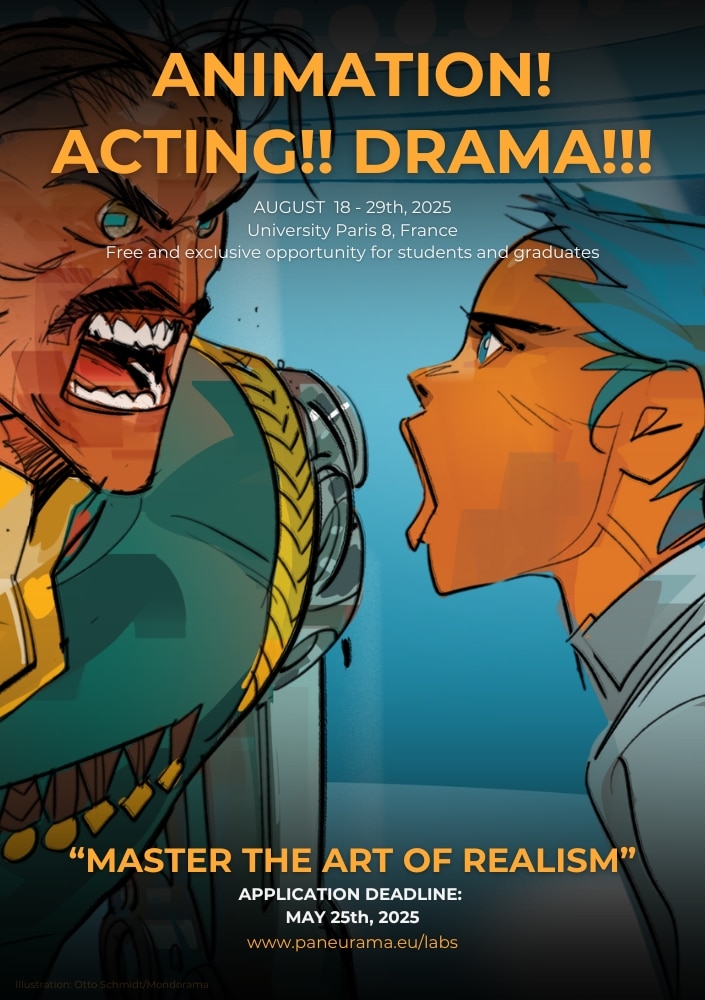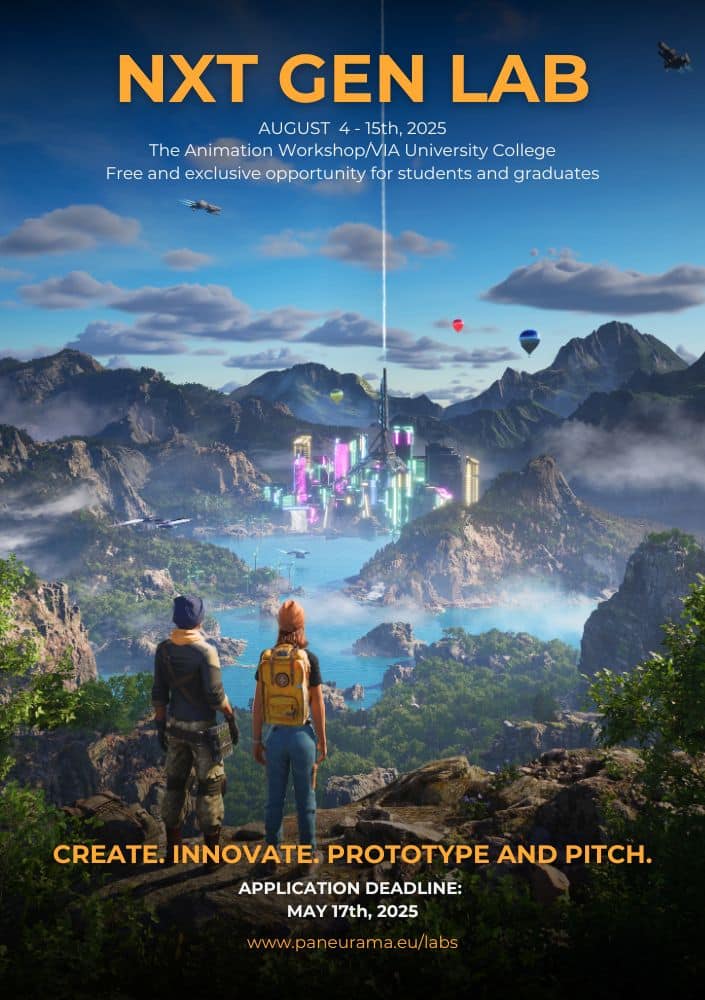We asked our team from the PANEURAMA project to briefly introduce themselves, share the areas they are working on, and respond to some questions addressing current challenges and opportunities in the industry.
We hope you will enjoy reading their insights. The interviewee is Peter Dyring-Olsen from The Animation Workshop/VIA University College

Peter Dyring-Olsen
Head of Studies
@The Animation Workshop
VIA University College
Q: Can you provide a brief overview of yourself, your professional experience, and the institution you work in?
I am the Head of Studies at The Animation Workshop in Denmark. Before The Animation Workshop, I had a career in publishing and communication. The Animation Workshop offers three professional bachelor’s degrees (Computer Graphic Arts, Character Animation and Graphic Storytelling), several professional training courses as well as several other activities that fall under the headline “Animation and visual storytelling”.
Q: In recent years, what do you consider the most significant changes within creative digital education? How has it affected your institution? Could you give some examples?
Apart from the uncertain job landscape across various industries, I would say it is the rapid development of revolutionary technology such as Real Time Production and AI.
For our institution, it has meant that we are challenged to take in relevant new knowledge as it develops while maintaining a deep understanding of the fields we teach. We are dedicated to developing more agile ways of teaching new tech and foresee that this is a state of being we’ll constantly be in.
Q: What, in your opinion, are the primary challenges currently faced by creative digital education and how is it affecting your institution? Could you give some examples?
Overall, the challenge is keeping up with the changes in technology and the potential changes these will lead to in the core skillsets that are needed in the future. For example: In a world influenced by artificial intelligence (AI), how do we define craftsmanship? What does crafts mean? This is a clear task we have at hand.
Q: Could you please identify the most significant opportunities for creative digital education and possible ways to address them?
Every new development also brings new opportunities. I think that the situation these past few years calls ever more for deep and meaningful collaborations. This requires that each institution understanders their values which will then enable them to reach out. It seems clearer than ever that no one institution or organisation can solve the complex issues of our times.
Q: What do you think are the most important hard skills in the area of creative digital education in which you are working?
A certain level of hard skills in relevant software is a good basis for understanding new technology and new developments.
Q: What advice could you give to industry professionals to foster closer collaboration and partnership with educational institutions? Could you share some examples?
My best advice is to try to have a broader perspective than the current needs of the individual companies. As an educational institution, we need to maintain a broader focus for our students to ensure that our graduates possess adaptable skills and do not enter the job market with highly specialized skills that are becoming obsolete.
Q: What do you think creative digital educational institutions should focus more on to better prepare young artists for their careers?
Overall, I think critical thinking and mastering creative processes rather than exact knowledge of singular elements of particular software is a fruitful way to go. Other than that, education should help students develop a learning mindset so they are capable of translating their current skills into new situations and building up more knowledge and skills as it becomes necessary.
Q: What do you think are the most important soft skills needed for students and graduates who are going to work in creative digital industries? Could you give some advice on how to develop them?
Developing a professional curiosity towards new developments is key. Also, and importantly, creatives must understand teamwork as well as have an open mind to understanding other professions and how they work.
Q: Could you provide suggestions or recommendations for students and graduates aiming to succeed in the current market?
The current market is going through lots of changes and facing layoffs and other setbacks.
I highly recommend that young professionals develop an open mindset that allows them to translate their skills into other areas and fields. Also, try to engage actively with the thought that the industry always fluctuates between its lows and highs, and the market situation will be vastly different even two years from now.
Finally, I think it is more important than ever that creatives try to understand where they can help create meaning and value.

